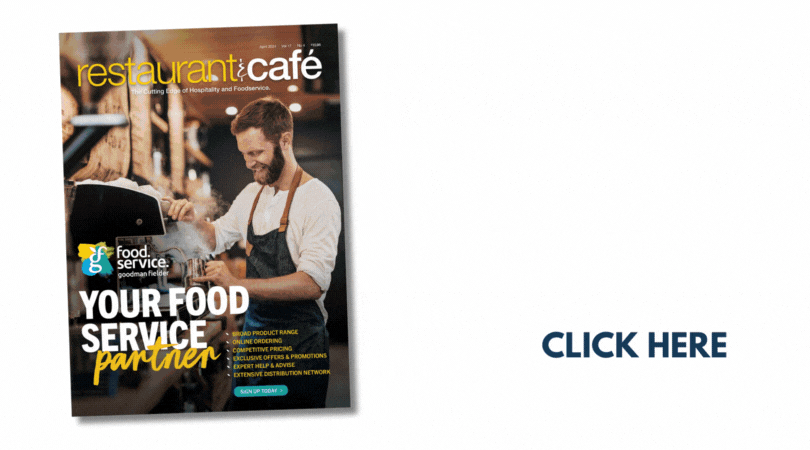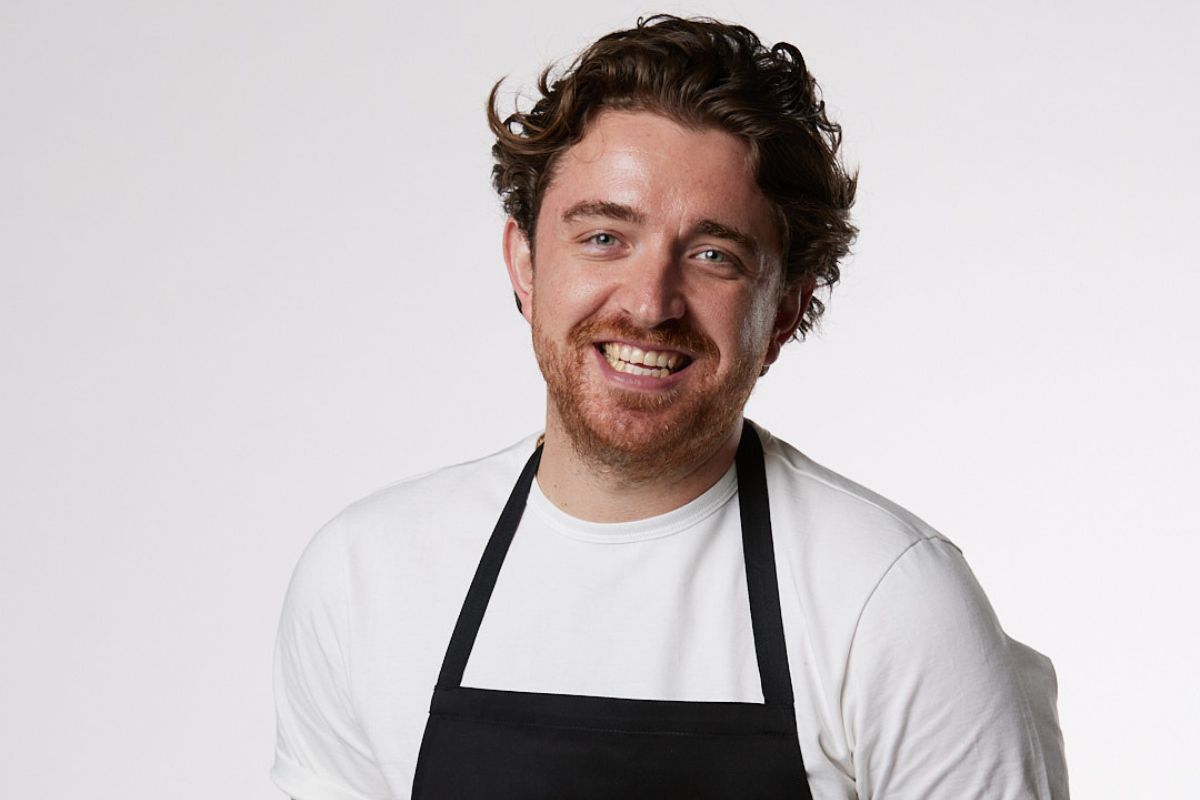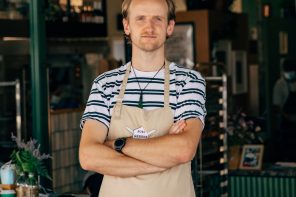As one of five chefs recently becoming part of KiwiHarvest's latest initiative, the KiwiHarvest Collective, the UK-born Alfie Ingham shared that his interest in food has always been present.
However, the homebaked birthday cakes made by his mother that Alfie grew up with were the starting point of his appreciation for food, even though the chef admitted he may have taken it for granted then.
"My mom always baked me a cake for my birthday. I'd go to other friends' birthday parties, and they had cakes and supermarkets. My little young brain couldn't quite fathom that someone would buy a cake from a supermarket because surely your mom bakes cakes," said Ingham.
Ingham shared that his journey to becoming wasn't strictly linear, from being a dishwasher while at school as a young teenager to moving to the butcher's counter at college.
However, at 22 years old, as Ingham described, he ran away from England to Australia. With public interest in chefs and restaurants peaking then, Ingham applied for a job in Melbourne, where he was immediately given responsibility.
Ingham shared that he was given a chance that paid off, and from his first opportunity, he could move from job to job with a philosophy of working on learning as much as possible.
The chef has been in New Zealand for the last decade, having been the head chef at Hugo's Bistro for the last three and a half years. Previously Ingham has worked in a few other fine dining restaurants in Auckland and Wanaka, such as Meredith’s and Clooney.
Currently, the chef is working towards opening his restaurant, which he admits is taking longer than expected. However, when asked about the vision and dining experience he had in mind for his new restaurant, Ingham said that his first love had always been French bistro, with small wooden tables, an approachable, relaxed atmosphere, and excellent food made with quality ingredients.
The chef shared that he believed there were plenty of fine dining options in New Zealand but that there needed to be more of a mid-level range, which he described as bistro food. Ingham stated that he felt bistro food was underrepresented, which he intends to deliver.
"I've always thought that the best meals of my life have been in small bistro being quote unquote, relaxed, you know, like unfussy."
When describing what kind of dishes he would serve, Ingham said his menu would align with meals like a hanger steak with peppercorn sauce, a bistro classic served on a plain white plate.
"So we do all the work, but the customer can just sit down and have lunch."
Ingham got involved with KiwiHarvest after getting to know the chef, and the first ambassador, Peter Gordon. The chef shared that KiwiHarvest's goals aligned with Ingham's ethos. Having admired the organisation's efforts, Ingham described KiwiHarvest's practises for minimising food waste as being mirrored to good basic practices within the kitchen and something which he believed should be more common than it is.
The chef detailed a recent experience working with KiwiHarvest. The organisation diverted pallets of chillis meant for the landfill, a fresh product for which Ingham stated chefs were paying 100 NZD per kilo.
Restaurants and menus often experience change due to seasonality and the psychological barrier involved with what a dish should be charged. However, Ingham said the increasingly staggering prices of reliable, staple vegetables, such as cabbage, cauliflower and potatoes, made grocery shopping challenging for all.
However, he shared that these challenges also drove chefs to be creative.
With his restaurant, Ingham has similar goals of working with small suppliers and supporting independent fishermen, butchers, and farmers. The KiwiHarvest Collective has plans to host events to generate awareness, with Ingham sharing that there was potential for creating meals from rescued food.
When advising on chefs entering the industry, Ingham emphasised the importance of taking the initiative to teach and learn yourself and taking every opportunity to assess what can be learned from the other chefs, the situation, or the restaurant. Ingham also emphasised the importance of having a world outside of being a chef.
"Don't get stuck thinking you must work 100 hours a week and sleep in them. Otherwise, you become a kitchen monkey that never left the kitchen."
When discussing the options for names of his new restaurant, Ingham didn't have any ideas to reveal yet, joking that the name would be thought of the day that it opened.






